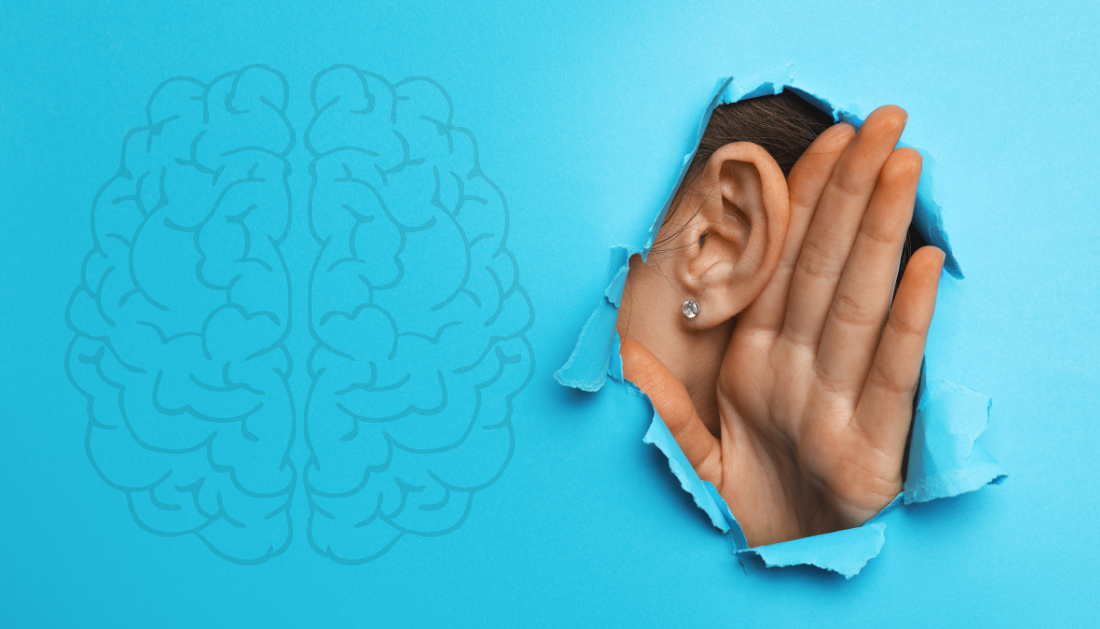

Selective Attention: New Insights from the Auditory Cortex
A recent collaborative study from the University of Michigan’s Kresge Hearing Research Institute and the University of Rochester reveals that selective attention, the ability to focus on one voice in a noisy environment, is a purely cortical function. Contrary to earlier assumptions, researchers found no evidence that the brainstem or auditory nerve modulates the sounds we choose to pay attention to.
Using cutting-edge experimental techniques and natural speech samples, the team tested how the brain processes sound under both diotic and dichotic listening conditions. Their findings show that only the auditory cortex amplifies signals of interest, essentially “turning up the volume” on the voice you’re listening to, while ignoring the rest.
“Subcortical parts of the auditory system respond to speech you’re paying attention to in the same way as speech you’re ignoring,”
explained Ross Maddox, Ph.D., Associate Professor of Otolaryngology at the University of Michigan.
Explore All Otolaryngology CME/CE Conferences and Online Courses
Selective Attention and Its Role in Auditory Processing Disorders
For clinicians and audiology specialists, these results offer new clarity about speech-in-noise perception. Many hearing difficulties once attributed to peripheral damage may instead stem from cortical-level attention mechanisms. Understanding this distinction could reshape hearing aid algorithms, cochlear implant training, and central auditory rehabilitation programs.
Furthermore, by using continuous, real-speech stimuli rather than artificial tones, the study establishes a more realistic approach to assessing selective hearing. This model could inform future diagnostic protocols for patients with auditory attention disorders, especially in aging or cognitively impaired populations.
Cortical Clarity for the Future of Hearing Science
Researchers note that while current tools reveal no subcortical attention effect, the possibility of undetectable micro-neural activity remains open. As recording technologies improve, the next step may be uncovering how microcircuits cooperate with the cortex to fine-tune human listening.
For now, this study reinforces that selective attention—the brain’s internal spotlight—is powered primarily by cortical networks, redefining how both clinicians and researchers understand the auditory system’s hierarchy.
Source:
more recommended stories
 AI Predicts Chronic GVHD Risk After Stem Cell Transplant
AI Predicts Chronic GVHD Risk After Stem Cell TransplantKey Takeaways A new AI-driven tool,.
 Red Meat Consumption Linked to Higher Diabetes Odds
Red Meat Consumption Linked to Higher Diabetes OddsKey Takeaways Higher intake of total,.
 Pediatric Crohn’s Disease Microbial Signature Identified
Pediatric Crohn’s Disease Microbial Signature IdentifiedKey Points at a Glance NYU.
 Nanovaccine Design Boosts Immune Attack on HPV Tumors
Nanovaccine Design Boosts Immune Attack on HPV TumorsKey Highlights Reconfiguring peptide orientation significantly.
 High-Fat Diets Cause Damage to Metabolic Health
High-Fat Diets Cause Damage to Metabolic HealthKey Points Takeaways High-fat and ketogenic.
 Chronic Brain Compression Triggers Neuron Death Pathways
Chronic Brain Compression Triggers Neuron Death PathwaysKey Takeaways Chronic brain compression directly.
 Acute Ischemic Stroke: New Evidence for Neuroprotection
Acute Ischemic Stroke: New Evidence for NeuroprotectionKey Highlights A Phase III clinical.
 Needle-Thin Brain Implant for Layer-Specific Brain Research
Needle-Thin Brain Implant for Layer-Specific Brain ResearchKey Takeaways Researchers have developed a.
 Statins Rarely Cause Side Effects, Large Trials Show
Statins Rarely Cause Side Effects, Large Trials ShowKey Points at a Glance Large.
 Anxiety Reduction and Emotional Support on Social Media
Anxiety Reduction and Emotional Support on Social MediaKey Summary Anxiety commonly begins in.

Leave a Comment